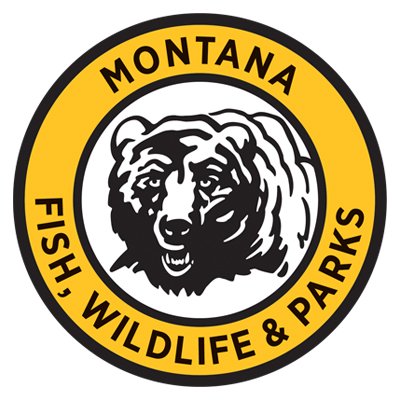Wildlife Management Biologist
- 📅
- 25140812 Requisition #
- 📅
- 1 day ago Post Date

Please remember to attach the required documents listed in this announcement.
- Resume
- Cover Letter
Applications missing the requested documents will be considered incomplete and may not progress further in the process. Documents not requested will not be considered in the recruitment process. The State Application is not a substitute for a Resume. This position closes at 11:59 PM Mountain Time on April 21, 2025. You must apply through the State of Montana Career site.
Special Information:
Identity of applicants who become finalists may be releases to the public if the Department deems it necessary. Employees who exceed 1,040 hours in a calendar year are also provided health, dental and life insurance. Other benefits include retirement, paid vacation, sick and holidays. This position may be covered by a VEBA (Voluntary Employee Beneficiary Association).
A successful applicant will be subject to a background investigation.
Women and minorities are under-represented in this job category and are encouraged to apply.
Specific Job Information:
The position offers a rewarding opportunity to work with an effective team of wildlife professionals to conserve wildlife and habitat resources and provide for public access to enjoy those resources in eastern Montana. Applicants should have strong communication skills and the desire to build working relationships with private landowners, sportsmen, agency staff, NGOs and other members of the public. Wildlife surveys and inventories often require use of light aircraft and helicopter at low altitudes and in hazardous flying conditions, sitting in confined spaces with exposure to high noise levels. Field work is often carried out alone in rugged terrain during unpredictable and inclement weather conditions. Hours of work are often long and irregular and include evening meetings and occasional weekend work.
Malta is in north central Montana and has a population of approximately 2,000. There are medical and basic shopping facilities located within Malta, while the cities of Billings and Great Falls are within a two-hour drive. The Missouri River Breaks, Nelson Reservoir and Fort Peck Reservoir are located within 60 miles and offer a wide variety of recreating opportunities such as hiking, camping, hunting, and fishing. Malta is surrounded by public land, native prairie and offer excellent opportunities for upland bird hunting, big game hunting, bird watching, and multi-species fishing.
Job Duties:
An Area Wildlife Biologist is responsible for implementing FWP's wildlife management, habitat conservation and public hunting access programs in the Malta Area, which generally encompasses Phillips County, duties include:
- Designing and conducting field investigations on wildlife populations and habitats
- Preparing wildlife management and hunting/trapping recommendations
- Informing the public of wildlife and habitat matters and communicating department programs
- and policies
- Working with private landowners and other partners to maintain, enhance, and protect wildlife habitat
- Maintain and enhance public hunting access on private and public lands
Ability to effectively work with private landowners, sportsmen, state and federal agencies, NGOs, and other members of the public is essential to the job.
Knowledge, Skills and Abilities:
Knowledge and ability to integrate the arts and sciences of wildlife population biology, plant and animal ecology, soil science, research techniques and the principles of wildlife management. Knowledge of the biology, behavior, and ecology of a diversity of wildlife. Knowledge of appropriate and accepted wildlife survey techniques and use of technical equipment essential for wildlife management operations. Ability to quickly learn a variety of specialized wild animal capture and handling techniques.
Ability to conceptualize wildlife problems, design projects to test hypotheses, conduct field studies, compile and analyze wildlife data, interpret results, present conclusions and recommendations, communicate complex issues and ideas to diverse audiences.
Knowledge of the habitat requirements of wildlife species and how those requirements vary across a broad range of ecotypes. Familiar with and be able to implement a variety of habitat and vegetation survey techniques. Knowledge of plant identification and physiology and ecology.
Ability to quickly learn FWP's habitat program including land conservation tools, grazing system design and management, upland game bird and waterfowl enhancement programs, and approaches to evaluating habitat impacts by wildlife, livestock and human activities.
Ability to establish and maintain effective working relationships and communicate verbally and in writing with employees, other agencies, corporations and various public and private factions. Ability to collaborate with others (researchers, managers, specialists) internal and external to the Department.
Ability to learn necessary skills for high-visibility public processes that are controversial and involve the entire spectrum of interests and stakeholders in wildlife conservation issues.
Ability to prioritize and manage a range of tasks. Ability to work independently with little to no daily supervision.
Minimum Qualifications (Education and Experience):
The knowledge, skills, and abilities of this position are normally attained through a combination of education and experience equivalent to a master’s degree in Fish and Wildlife Management, Wildlife Biology, Range Management, Zoology or Biology, including completion of a field research project presented in a successfully defended thesis. Other combinations of education and experience will be considered on a case-by-case basis.
Equivalent experience is defined as five (5) years of progressively responsible experience as a wildlife biologist or senior wildlife technician that includes the examples of:
- Literature review and development of a problem statement and/or hypothesis for a particular issue.
- Development of a detailed study plan or sampling protocol for a field-oriented project based on the above-noted hypothesis.
- Data collection and the effective management of data with an appropriate application.
- Interpretation and analysis of data, including a quantitative assessment of that information.
- Completion of a final report in a peer-reviewed publication or a publication comparable to a refereed journal.
- If appropriate to the project, formulation of any recommended changes in management prescriptions and/or actions.
- Oral presentation on results of investigation to agency staff or public audience.
If you feel you meet the equivalent experience, please provide a supplemental document in your application that indicates your experience level relative to each point listed above.
